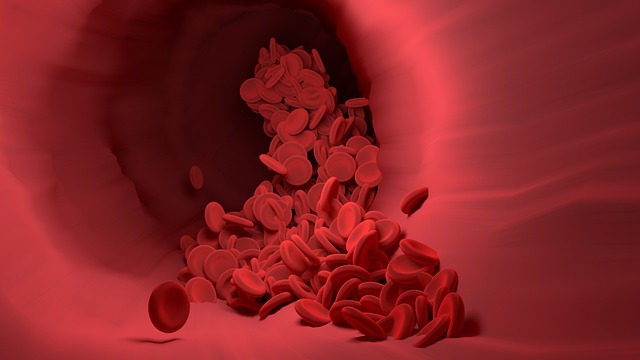Financial Insights on Sperm Donation in Leeds
Sperm donation in Leeds presents various financial considerations for donors. Understanding how much a sperm donor can earn is essential for those interested in this process. Sperm clinics London play a crucial role in facilitating donations. This overview offers insights into the financial aspects of sperm donation.

Sperm donation has become an increasingly important component of assisted reproduction in the United Kingdom. For those considering becoming a donor in Leeds, understanding the financial elements can provide clarity and help set realistic expectations. This article explores the compensation structure, the donation process, clinic requirements, and the overall financial landscape of sperm donation in this vibrant Yorkshire city.
Understanding Sperm Donation in Leeds and Its Financial Aspects
In the UK, sperm donation is regulated by the Human Fertilisation and Embryology Authority (HFEA), which ensures that all donations meet strict safety and ethical standards. Donors in Leeds, as elsewhere in the country, are not paid for their donation in the traditional sense. Instead, they receive compensation for their time, travel, and any expenses incurred during the donation process. According to HFEA guidelines, donors can receive up to £35 per clinic visit. This compensation is designed to cover reasonable expenses rather than serve as payment for the biological material itself. The distinction is important, as it maintains the altruistic nature of donation while acknowledging the commitment required from donors. Most donors in Leeds attend a clinic multiple times over several months, meaning the total compensation can accumulate, though it remains modest compared to the time investment involved.
Key Requirements for Sperm Donation Clinics
Clinics offering sperm donation services in Leeds must adhere to stringent HFEA regulations. These requirements ensure donor safety, recipient protection, and the welfare of any children born from donated sperm. Prospective donors typically undergo comprehensive health screenings, including blood tests for infectious diseases, genetic screening, and a detailed medical history review. Clinics also assess lifestyle factors such as smoking, alcohol consumption, and overall health. The age range for donors is generally between 18 and 41 years, though some clinics may have slightly different criteria. Additionally, donors must be prepared for the legal implications: since 2005, UK law has required that donor-conceived children can access identifying information about their donor once they reach age 18. This means anonymity is no longer guaranteed, and donors should consider the long-term implications of their decision. Clinics in Leeds provide thorough counseling to help potential donors understand these responsibilities.
The Process of Donating Sperm
The journey to becoming a sperm donor in Leeds involves several stages. Initially, prospective donors complete an application form and attend an initial consultation where clinic staff explain the process, answer questions, and assess suitability. If accepted, donors undergo medical screening, which includes blood tests, semen analysis, and a physical examination. The semen analysis evaluates sperm count, motility, and morphology to ensure the sample meets the required standards for donation. Once cleared, donors typically visit the clinic regularly, often weekly or fortnightly, to provide samples. Each visit may take 30 minutes to an hour, including paperwork and sample provision. The donation period usually lasts several months, with most clinics requesting a commitment of at least six months. Throughout this time, donors receive the standard compensation per visit. After the donation period concludes, donors may be contacted if further samples are needed or if donor-conceived individuals seek information in the future.
Financial Compensation and Clinic Comparison in Leeds
For those interested in the practical financial aspects of sperm donation in Leeds, it is helpful to understand how different clinics structure their compensation and what services they offer. Below is a comparison of typical sperm donation services available in the Leeds area.
| Clinic/Service | Compensation Per Visit | Key Features |
|---|---|---|
| NHS Fertility Services | Up to £35 | HFEA-regulated, comprehensive screening, counseling support |
| Private Fertility Clinics | Up to £35 | Flexible appointment times, personalized donor support, advanced testing |
| Regional Sperm Banks | Up to £35 | Centralized processing, wider recipient access, long-term storage |
Prices, rates, or cost estimates mentioned in this article are based on the latest available information but may change over time. Independent research is advised before making financial decisions.
Costs for Recipients and Clinic Operations
While donors receive compensation for their time, it is also worth understanding the financial landscape from the recipient perspective. Fertility treatments using donor sperm can be costly for individuals and couples seeking to conceive. In Leeds, the cost of intrauterine insemination (IUI) using donor sperm typically ranges from £800 to £1,300 per cycle at private clinics, while in vitro fertilization (IVF) with donor sperm can cost between £4,000 and £8,000 per cycle. NHS funding for fertility treatments varies by Clinical Commissioning Group, and eligibility criteria can be restrictive. These costs reflect the complex processes involved, including sperm storage, preparation, medical consultations, and the procedures themselves. Clinics must maintain rigorous standards, invest in laboratory equipment, and employ specialized staff, all of which contribute to the overall expense of fertility services. Understanding these costs provides context for why donor compensation remains modest: the financial burden of fertility treatment primarily falls on recipients and healthcare providers rather than donors.
Ethical and Legal Considerations
Beyond the financial aspects, sperm donation in Leeds involves important ethical and legal considerations. Donors must be aware that any children conceived from their donation have the legal right to access identifying information upon reaching adulthood. This represents a significant shift from historical practices of anonymous donation and reflects a growing recognition of the importance of genetic heritage. Donors should also consider the emotional implications of potentially being contacted by donor-conceived individuals in the future. Clinics provide counseling to help donors navigate these complex issues, ensuring they make informed decisions. The HFEA maintains a register of all donors and donor-conceived individuals, facilitating this process while protecting the privacy of all parties involved. For many donors, the decision to donate is driven by a desire to help others rather than financial gain, making the modest compensation secondary to the satisfaction of contributing to family creation.
Sperm donation in Leeds represents a meaningful way for individuals to help others achieve their dreams of parenthood. While the financial compensation is modest and designed to cover expenses rather than provide income, the process is well-regulated, safe, and supported by experienced professionals. Understanding the financial aspects, from donor compensation to recipient costs, provides a comprehensive view of the fertility landscape in Leeds. For those considering donation, the commitment extends beyond financial considerations to include ethical, legal, and emotional dimensions that deserve careful thought and preparation.
This article is for informational purposes only and should not be considered medical advice. Please consult a qualified healthcare professional for personalized guidance and treatment.




